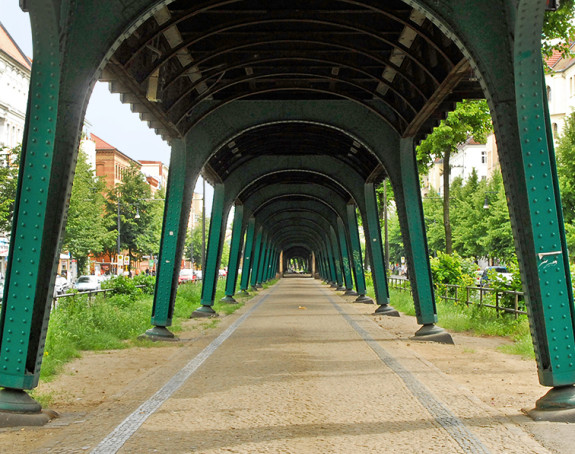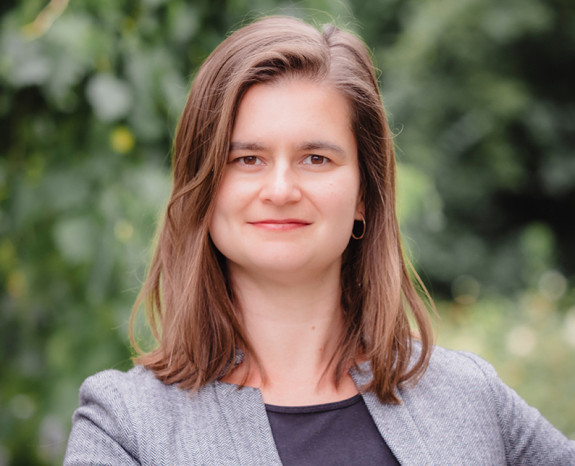
Public transport – what will the new legislative period bring?
Some of Germany’s largest cities had to reduce their public transport services last year, and a recent comparative study by Greenpeace has shown that the further development of public transport services is stagnating in many cities. Currently, municipalities have limited scope for action with regard to public transport due to their increased workload in recent years. The available revenue is insufficient to accomplish the tasks needed. Rising energy and personnel costs are exacerbating the situation further. Yet attractive public transport is indispensable in responding to the challenges of future-oriented mobility, particularly in urban centres. It is also necessary from the point of view of climate action and for ensuring social participation in urban and rural areas.
Public transport is a central pillar of mobility in Germany. Eleven per cent of all journeys in Germany are made by public transport. It is used even more frequently in metropolitan areas and large cities: around a quarter of all journeys in Berlin and Nuremberg are made by public transport. Following a temporary decline in passenger numbers during the Covid-19 pandemic, the latest results of the Mobility in Germany (MiD) study show that numbers have now returned to normal. The ecological and social importance of public transport is widely recognised in both practice and research. To maintain this social benefit, federal, state and local governments must collaborate to expand and modernise public transport services. The main priority, particularly in suburban and rural areas, should be to establish a comprehensive and attractive service offering with uniform operating standards.
Achievements such as the “Deutschlandticket”, a nationwide travel card, are important for encouraging the use of public transport. With currently 13.5 million season ticket holders, the Deutschlandticket enables the relatively inexpensive and simplified use of public transport for a flat-rate fare. Furthermore, given the rise in the cost of living, this ticket provides particular relief for those living in urban areas. Its relatively low price removes the financial barrier to regular and frequent use. This makes it all the more important to continue the Deutschlandticket as planned in the coalition agreement, including with reliable funding structures. This would create planning security for local public transport authorities, employers (e.g. with Jobtickets) and passengers alike.
This requires fair financing: to avoid further barriers to public transport use, the ticket price must remain affordable for passengers. In the political debate, greater consideration should be given to the overall social cost efficiency of public transport compared with cars. Studies have repeatedly demonstrated the high direct and external costs of vehicular traffic. By contrast, favourably priced public transport makes a positive overall contribution to affordable mobility for all, even with high levels of subsidy. Furthermore, public transport also strengthens the economy by generating three times as much added value as it costs, as an MCube study recently illustrated. As well as having an impact within the public transport sector itself, favourably priced public transport has positive knock-on effects in areas such as tourism, retail and the property industry, and supports overall employment by transporting commuters.
Another public transport achievement of recent years is the expansion of on-demand transport and its regulatory integration into public transport. Many municipalities have increased the accessibility and convenience of public transport through on-demand services that provide basic mobility in rural areas, supplement scheduled services at off-peak times and in peripheral areas, and offer transfer-free connections from A to B. The introduction and expansion of such services has been made possible largely through federal and, in particular, regional state funding programmes. However, the discontinuation of several funding schemes has recently led to the termination of numerous on-demand services.
It is important to provide needs-based public transport, especially in rural areas, and to offer a basic service at off-peak times and at night. On-demand transport can play a significant role in this, particularly for people who want or need to get around without a private car. This includes around ten per cent of households in rural areas who do not own a car, as well as the 14 percent of Germany’s population who have mobility-related health restrictions. These groups are particularly dependent on car journeys and are likely to grow in number, partly due to demographic change.
During the current legislative period, it is therefore important to recognise the role of public transport in providing services of general interest and equal living conditions, particularly in urban areas and, increasingly, in rural communities. It is also important to organise public transport in a long-term and needs-based manner. Nationwide minimum operating standards could be expedient here.
A future-proof public transport system must go far beyond what has been achieved so far – and the coalition agreement that has been adopted: alongside the existing Deutschlandticket, affordable mobility for all needs to be strengthened in a targeted manner – including within the public transport sector. Families would benefit from favourably priced (family) fare solutions as part of the Deutschlandticket. Conversely, people on very low incomes could benefit considerably from a social ticket that is available throughout Germany and, ideally, is standardised – for example, in the form of a heavily discounted Deutschlandticket.
Long-term financing solutions are needed to stabilise and expand public transport services. To this end, it is important to mobilise all available financial resources, including at the municipal level. To benefit services of general interest, municipalities should be given the power to secure new local sources of funding themselves. This would require a legal basis under state law for third-party user financing, similar to that provided by the mobility pass in Baden-Württemberg’s State Mobility Act. This would enable additional revenue to be generated through levies on car owners or the local population. In addition, it is conceivable that all road users and local business owners could contribute to these levies through corresponding regional state legislation. Similar solutions are already in practice in other countries. For instance, employer contributions financed almost half of public transport in the greater Paris area in 2022.
Given the tight budgetary situation of many municipalities, which can probably only be resolved in the long term through additional revenue, stronger financial support from federal and state governments is essential. The “modernisation pact” announced in the coalition agreement builds on a plan formulated by the previous federal government, but not implemented. The federal government must now demonstrate leadership by developing a future scenario for attractive local public transport in collaboration with the federal states, while also agreeing on a fair distribution of the burden.
The challenges are huge. This makes it all the more important that the federal, state and local governments work together during the current legislative period to secure sustainable funding for local public transport.
